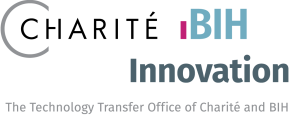The circadian clock is a biological program that structures physiology and behavior according to the time of day. The rhythm of this internal clock varies from individual to individual and influences almost all bodily functions. A few genes shape the circadian clock and determine whether a person is an early or late riser. Our fast-paced lifestyles in modern society lead to the misalignment or disruption of our circadian clock, which is associated with numerous common diseases such as sleep disorders, psychological disorders or metabolic syndromes. The circadian clock has been extensively studied by Prof. Dr. Achim Kramer, head of the Department of Chronobiology at the Charité. To assess an individual’s circadian clock, he has developed an RNA based diagnostic assay that has launched as BodyClock in spring 2021. Previously, the project has been supported with mentoring and funding by SPARK in 2017, where he identified a core set of time-telling genes and developed a robust assay and predictive algorithm. Subsequently, Prof. Kramer secured follow-on funding by the BIH Digital Health Accelerator (DHA) in 2018.
The startup BODYCLOCK Technologies offers a service that determines the customers genetically fixed, individual chronotype and identifies the optimal times to sleep, eat, work and exercise. Furthermore, the service entails recommendations for improving sleep in everyday life including an individualized schedule. The technology assesses the activity of specific genes in the body, which have been identified over the last 5 years in several clinical studies. The basis of the analysis are hair follicles, which are sampled at home and sent to the laboratory. The service is especially beneficial for people who suffer from sleep problems and want to reduce daytime sleepiness.


